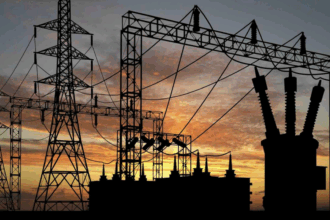In recent years, Ngozi Okonjo-Iweala has emerged as a prominent figure on the global stage.
Her incredible journey from a small village in Nigeria to becoming the Director-General of the World Trade Organization (WTO) is an inspiring tale of perseverance and dedication.
This article explores the remarkable rise of Ngozi Okonjo-Iweala, highlighting her achievements, challenges, and the impact she has made in the world of economics and international diplomacy.
Early Life and Education
ATTENTION: Click “HERE” to join our WhatsApp group and receive News updates directly on your WhatsApp!
Ngozi Okonjo-Iweala was born on June 13, 1954, in Ogwashi-Ukwu, Delta State, Nigeria. She grew up in a close-knit family and was influenced by her parents’ strong emphasis on education.
Her father, Professor Chukwuka Okonjo, was a renowned economist, which played a significant role in shaping Ngozi’s interest in the field.
She obtained her primary and secondary education in Nigeria before pursuing higher studies abroad.
Career in the World Bank
After completing her studies at Harvard University and the Massachusetts Institute of Technology (MIT), Ngozi Okonjo-Iweala joined the World Bank in 1982. She quickly rose through the ranks and became the Vice President of the World Bank’s Africa Region.
During her tenure, she focused on issues such as poverty reduction, education, and healthcare in Africa, earning a reputation for her dedication and expertise.
Return to Nigeria
In 2003, Ngozi Okonjo-Iweala left her position at the World Bank to serve her country as Nigeria’s Minister of Finance.
This decision was driven by her desire to contribute to the development of Nigeria and tackle the economic challenges faced by the nation.
Her appointment marked the beginning of a transformative period for Nigeria’s economy.
Minister of Finance
As Nigeria’s Minister of Finance, Ngozi Okonjo-Iweala implemented a series of bold economic reforms.
She introduced measures to strengthen fiscal discipline, improve transparency, and reduce corruption.
Under her leadership, Nigeria experienced significant economic growth and attracted foreign investment.
Her efforts played a crucial role in stabilizing the economy and boosting investor confidence.
Economic Reforms and Achievements
During her tenure as Minister of Finance, Ngozi Okonjo-Iweala spearheaded several critical reforms. She successfully negotiated the cancellation of Nigeria’s external debt, freeing up resources for development projects.
Additionally, she launched the Excess Crude Account, a strategic reserve for oil revenues, which provided a buffer against price fluctuations and safeguarded Nigeria’s economy.
Challenges and Resilience
Ngozi Okonjo-Iweala faced numerous challenges throughout her career, including resistance to change and vested interests.
However, she remained resilient and determined to drive positive change. Despite facing political opposition and personal threats, she never wavered from her commitment to improving the lives of Nigerians and making a lasting impact on the global stage.
International Recognition and Influence
Ngozi Okonjo-Iweala’s accomplishments garnered international recognition and established her as a respected leader in the field of economics.
She received numerous awards and accolades, including being named one of the “100 Most Powerful Women in the World” by Forbes magazine.
Her expertise and experience made her a sought-after advisor on economic matters for governments, organizations, and institutions worldwide.
Candidacy for the World Trade Organization
In 2020, Ngozi Okonjo-Iweala announced her candidacy for the position of Director-General of the World Trade Organization.
Her extensive experience in international finance and her deep understanding of economic development made her a compelling candidate.
Throughout the selection process, she showcased her vision for the WTO and emphasized the need for inclusive and sustainable trade policies.
Historic Appointment as WTO Director-General
After a rigorous selection process, Ngozi Okonjo-Iweala made history by becoming the first African and the first woman to be appointed as the Director-General of the World Trade Organization.
Her appointment was widely celebrated as a significant milestone in the organization’s history, marking a new era of leadership and inclusivity.
Ngozi Okonjo-Iweala’s Vision for the WTO
As the Director-General of the WTO, Ngozi Okonjo-Iweala has outlined her vision for the organization. She aims to strengthen the multilateral trading system, promote fairness, and address the challenges faced by developing countries.
Her leadership is focused on revitalizing global trade and ensuring that it benefits all nations, particularly those that are most vulnerable.
In conclusion, Ngozi Okonjo-Iweala’s journey to prominence is a remarkable testament to her exceptional talent, dedication, and unwavering commitment to creating positive change.
From her early beginnings in Nigeria to her groundbreaking role as the Director-General of the WTO, Okonjo-Iweala has made significant contributions in the fields of economics, finance, and development.
Her relentless pursuit of economic empowerment, poverty reduction, and inclusive growth has left an indelible mark on the global stage.
As we look to the future, it is clear that Okonjo-Iweala’s influence and legacy will continue to shape our world for the better.

